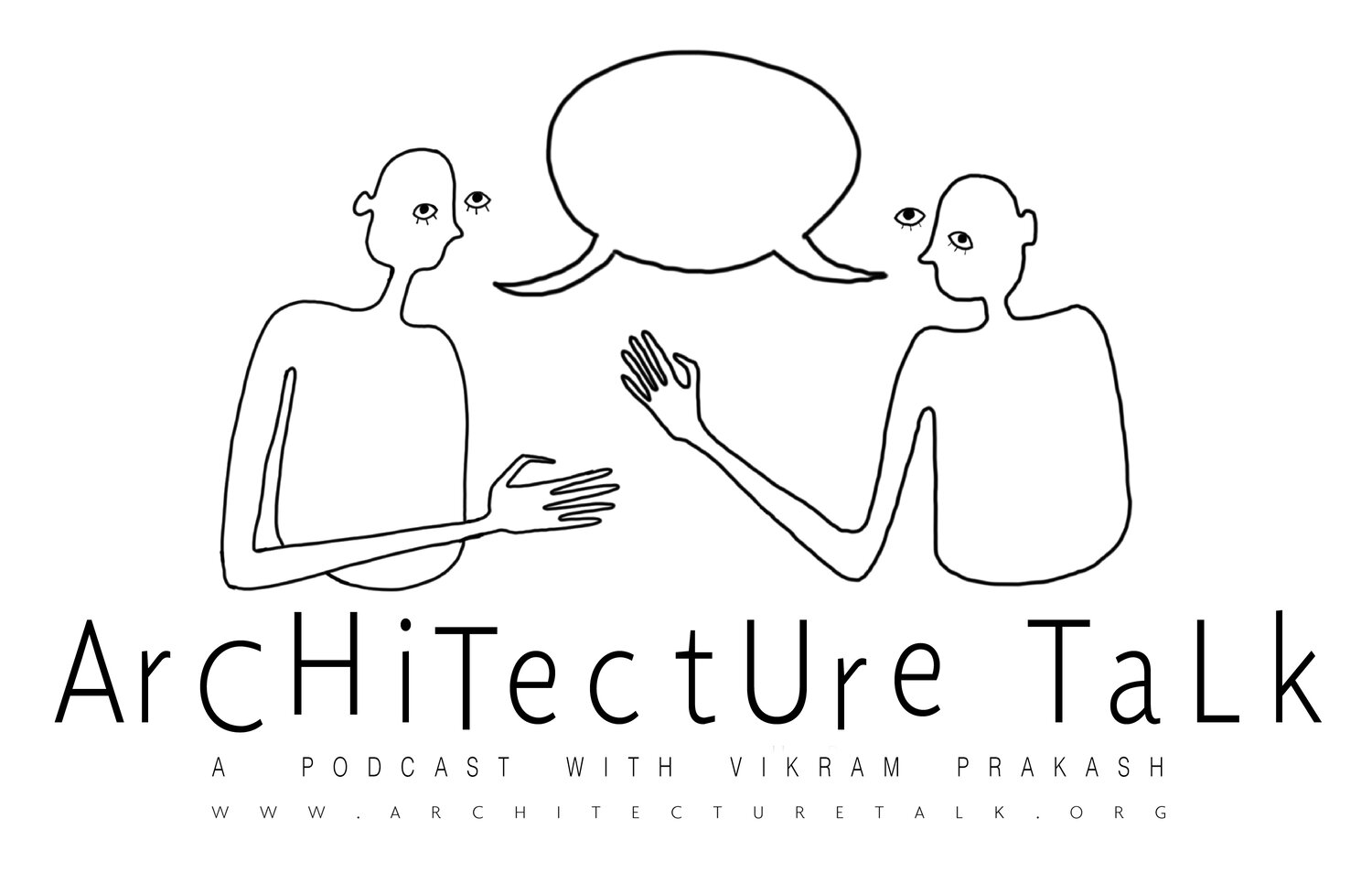73. AITC: The Built Form and Governmental Form with Prem Chandavarkar
Original drawing by Tori Haynes
“We need to think about how we imagine the city…we tend to imagine that culture comes from a tradition which has roots in the village and the city is only a technical entity…”
- Prem Chandavarkar
This week we continue our ongoing miniseries Architecture in the Time of Coronavirus with architect and theoriest Prem Chandavarkar. In this episode, we dissect how the Corona virus highlights marginalized communities, how it changes the ways in which we think about governance, and we ask what are the mechanisms by which we construct the notion of the city?
Timestamp Outline
3:25 Prem begins to discuss his relationship with his home and solitude during the Corona virus pandemic
6:05 “[when things start to open up again] it won’t be life as normal with the uncertainty, there’s going to be pressure on architects to transcend beyond just makers of the built environment...we’ll have to get more strategic about what a future is.” PC
10:50 Vikram and Prem begin to discuss the possible impacts that corona virus will have on India as a whole.
11:25 “There is a considerable awareness that we cannot think of our own welfare without thinking about their [more marginalized communities’] welfare.”
11:40 decentralizing governance often involves working toward high levels of participation from very localized subsidiaries of authority (i.e. to enhance the democractic voice); hearing from diverse interests and identities within those localized communities; efficient decision-making and action; and the promotion of peaceful conflict resolution.
14:30 “In what ways do you think our disciplines should leverage this new public interest in public health, in the commons, and respond coming out of this pandemic?” VP
16:45 How do we imagine the city? PC
17:30 How do built form and governance work together? PC
17:39 “As a profession we need to start thinking and acting on how we recognize the mechanisms by which we physically constitute a city. We have a paradigm of planning that doesn’t recognize half the city’s population…[certain populations] are forced outside the master plan...slums, unregulated layouts, the pandemic is making the consequences of that policy very evident.” PC
22:30 “The Informal Sector is an organization that is unregistered, does not pay taxes, is paying people on a daily wage, is offering no benefits so you don’t have medical cover...Now, the people who are daily wagers (if they don’t work today, they won’t eat tomorrow) account for 83 or 84% of employed labor.” PC
23:00 How does a lockdown affect the informal sector?
26:30 John Turner’s essay Freedom to Build, dweller control of the housing process: Housing as a Verb : “Standards of course have their uses; it would be impossible to plan or carry out any complex operation without them. But it is entirely improper to use them as measures of human value.” (JT, p. 153)
“The vital difference between organizations which use people and organizations which are used by people raises crucial issues at the policy level. If local decisions are made by central bodies, those decisions are bound to implement more or less standardized programs and projects for particular social groups in particular places and at particular times. But if local decisions are made by local people, those decisions must be ordered and supported by institutionalized services which must be open to all, in all places and at all times, within the normative framework of those institutions.” (JT, p. 154)
28:00 Vikram asks how the “freedom to build” theory can be updated?
31:00 Central Vista Project
51:20 “This is what we need to realize about architects: they are going to be substitutable and vulnerable to power etc until we in a very visible and demonstrable way demonstrate these structures of care.” PC
53:00 discussion about healthcare and healthcare workers and treatments of sickness rather than treatments for health.
56:00 architectural licensure as a quest for excellence or the attainment of safety threshold?





